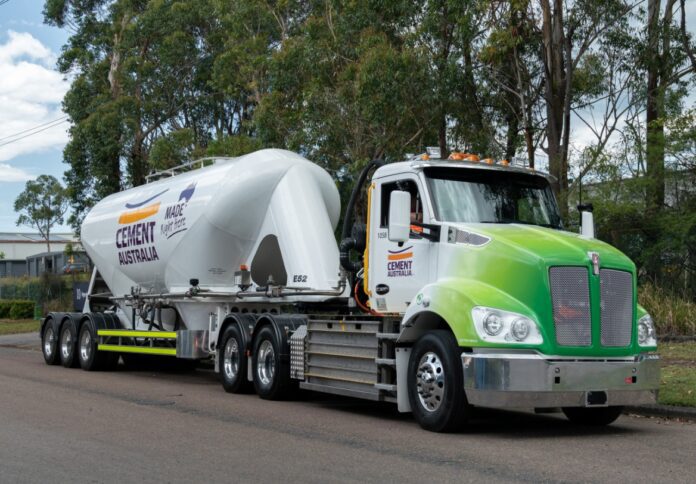
The Hunter Region, traditionally recognised for its industrial strength, is now becoming a key contributor to Australia’s shift toward renewable energy.
While manufacturing in the Hunter continues to thrive, the broader narrative is shifting towards sustainability, with local companies leading the charge towards net zero emissions.
The Hunter Manufacturing Awards (HMA) recently highlighted this transition, showcasing the efforts of key players who are not just participating in this shift but are actively shaping it.
AGL
AGL, a major energy company and HMA sponsor, exemplifies the Hunter Region’s commitment to renewable energy. With over 4.4 million customer services across energy and telecommunications and the largest private electricity generation portfolio in Australia’s National Electricity Market, AGL is at the forefront of the nation’s energy transition.
Seth Pathiyil, who heads AGL’s Hunter Energy Hub, has been instrumental in this transformation. Having worked with Macquarie Generation and AGL since their acquisition of the Bayswater and Liddell power stations in 2014, Pathiyil played a crucial role in the closure of Liddell, Australia’s oldest coal-fired power station. This achievement has set a new standard for the respectful and safe retirement of thermal power stations in the country.
AGL’s vision for the Hunter Energy Hub goes beyond closing old plants. The Liddell-Bayswater site, spanning 10,000 hectares, is poised to become a hub for next-generation renewable energy assets.
The site offers opportunities to attract industries into the precinct and help them decarbonise, contributing to a cleaner future for both the region and the nation.
Pathiyil outlines a clear transition pathway for AGL, which includes the closure of Bayswater by 2033 and Loy Yang by 2035. In tandem with these closures, AGL plans to add up to 12 gigawatts of renewable energy by 2035, with a short-term goal of five gigawatts by 2030.
“These are ambitious targets,” Pathiyil acknowledges, “but we are confident they will position AGL as a leader in Australia’s clean-energy future.”
One of the key focuses of the Hunter Energy Hub is the circular economy. AGL is exploring innovative technologies such as battery storage, smart grids, renewable manufacturing, and solar and battery recycling. By integrating these cutting-edge technologies, AGL aims to create a sustainable energy ecosystem in the Hunter Region.
Janus Electric
The transition to renewable energy is not confined to large corporations like AGL. Smaller businesses in the Hunter Region are also making significant contributions. Janus Electric, an HMA applicant, is one such company. Led by General Manager Lex Forsyth, Janus Electric is revolutionising the road transport industry with its innovative electric trucks featuring interchangeable batteries.
Headquartered in Berkeley Vale on the Central Coast, Janus Electric is electrifying Australia’s road transport fleet with cutting-edge technology. The company’s exchangeable batteries, which can be swapped in just four minutes at a Janus station, are powered by renewable energy sources. This innovation significantly reduces the carbon footprint of heavy vehicles, offering a practical solution for the trucking industry’s transition to greener alternatives.
Forsyth emphasises the importance of long-term planning and support for smaller manufacturers in Australia’s energy transition. “It’s not about grandstanding,” he says. “We need fixed government policies that set a path for the next 20 years and roll them out over the next two decades.” He believes that Australia has the intellectual acumen and infrastructure to succeed and that the Hunter Region, with its available land, high-tech engineering, and supportive services, presents a unique opportunity to lead the way.
Steber International
Steber International, another HMA applicant, has been making waves with its hybrid electric boats. Originally based in Sydney, Steber relocated to Taree 50 years ago and has since become a regional business with a global reach. The company’s collaboration with Tomago-based Ampcontrol has resulted in groundbreaking innovations in marine technology.
Alan Steber, general manager of Steber International, recalls the inspiration for the company’s first electric hybrid boat. While observing police boats idling around Sydney’s Darling Harbour, he wondered if an electric alternative could be developed.
This led to the creation of a proof-of-concept 22-footer in partnership with the University of Newcastle and Ampcontrol. Today, Steber’s large 43-foot battery-powered boats serve various sectors, including Defence, police, maritime authorities, charter operators, and marine parks.
Steber’s commitment to sustainability extends beyond new builds. The company has also embraced the circular economy by offering refits for its older vessels, ensuring they remain in service rather than ending up in landfills. “The first step to renewables is the circular economy,” says Steber. “We can provide Defence with refits almost equivalent to a brand-new boat for a third of the price. That’s a good start. Those boats are not ending up in our tip.”
The road ahead
The Hunter Region’s journey towards net zero is a testament to the power of innovation and collaboration. Local companies, both large and small, are playing a crucial role in this transition, ensuring that the road to a greener future is as smooth as possible.
The Hunter Manufacturing Awards said it continues to support and celebrate these efforts, encouraging all manufacturers in the region to participate and showcase their contributions.
For more information about the 2024 Hunter Manufacturing Awards and to enter, please visit www.hma.org.au. The registration and nomination period closes on 30 August, and entry is free.




















